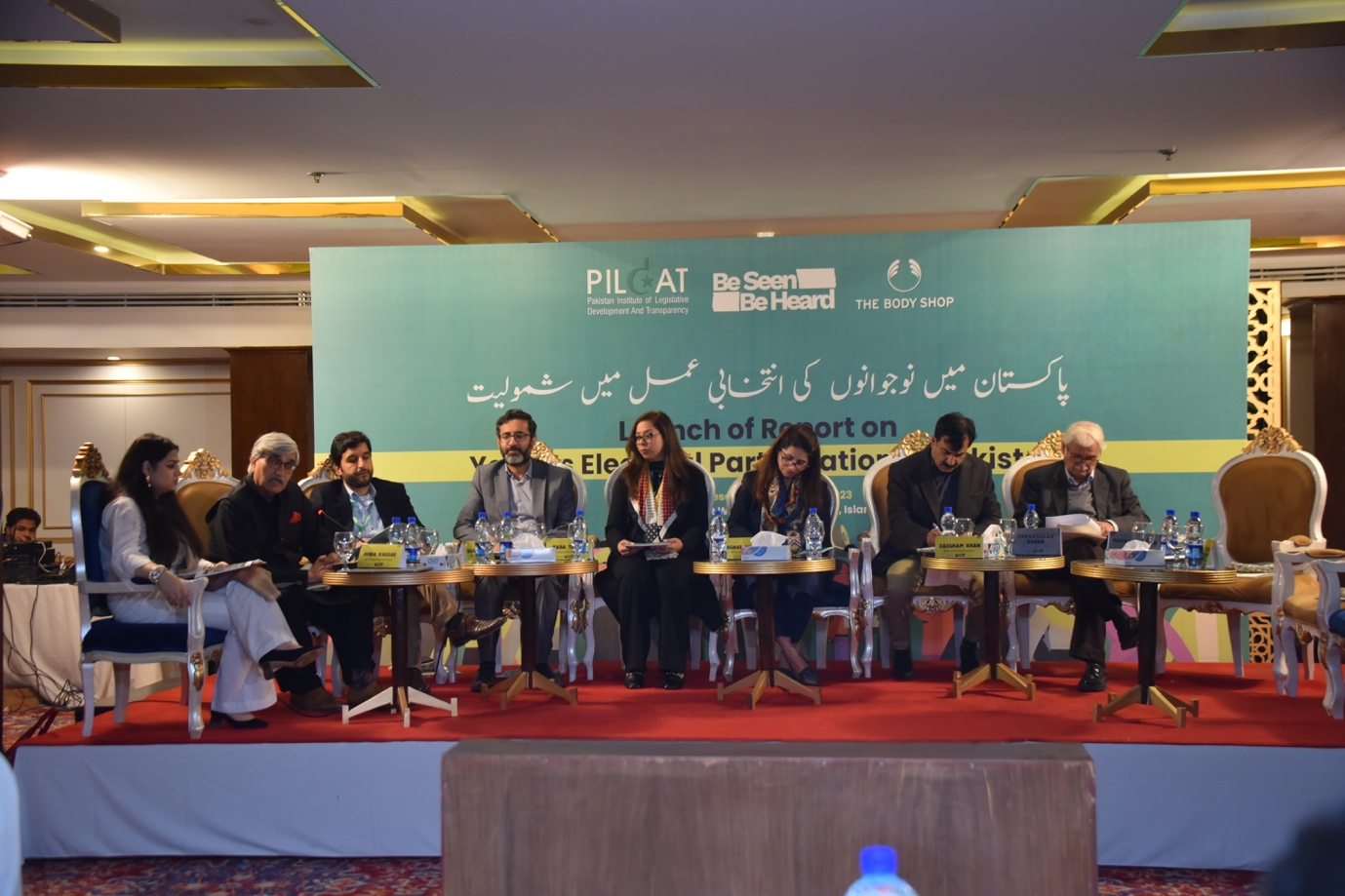
#YouthinParliament
Islamabad, December 20, 2023 – PILDAT (Pakistan Institute of Legislative Development and Transparency) orchestrated an unprecedented gathering in collaboration with the Body Shop to launch a seminal report, spotlighting ‘Democracy’s Vanguard: Youth’s Electoral Participation in Pakistan.’ This momentous event, held on Wednesday, December 20, 2023, from 01:00 pm to 04:30 pm (PKT) at the Best Western Premier Hotel in Islamabad, witnessed a convergence of political stalwarts, influential figures, CSOs and a pool of media to underscore the significance of youth engagement in electoral processes.
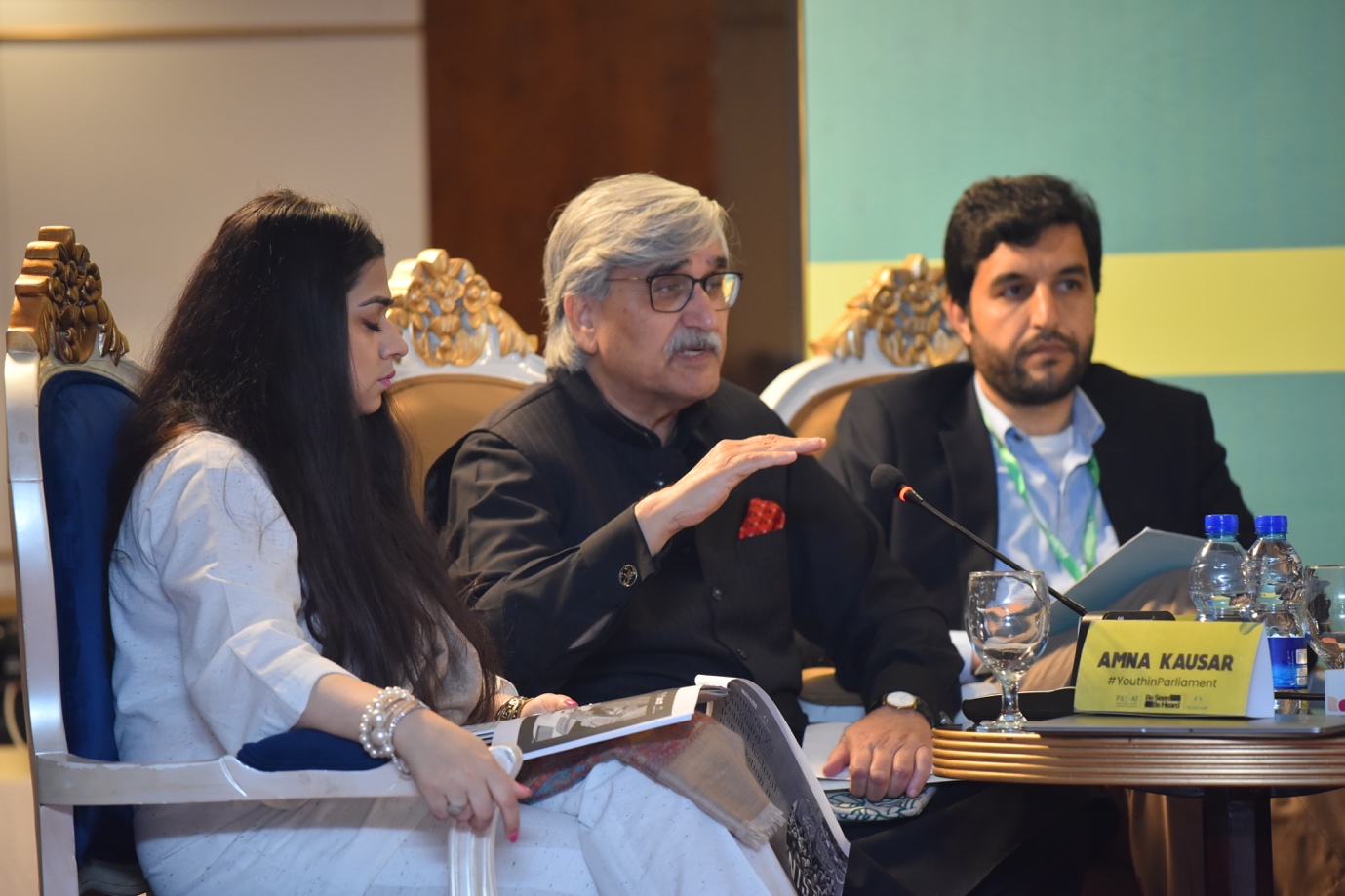
In a significant event marking the collaboration between PILDAT and The Body Shop, Mr. Ahmed Bilal Mehboob, President of PILDAT, greeted esteemed attendees and highlighted the transformative alliance. He lauded The Body Shop’s pioneering efforts in reshaping societal perceptions of women’s beauty and their active role in addressing critical issues such as youth voting in Pakistan. Mr. Mehboob raised concerns about the notably low youth voter turnout, which is below the overall voter turnout of around 44%. He commended the Election Commission of Pakistan (ECP) for its initiative to incorporate youth-focused objectives in its strategic planning.
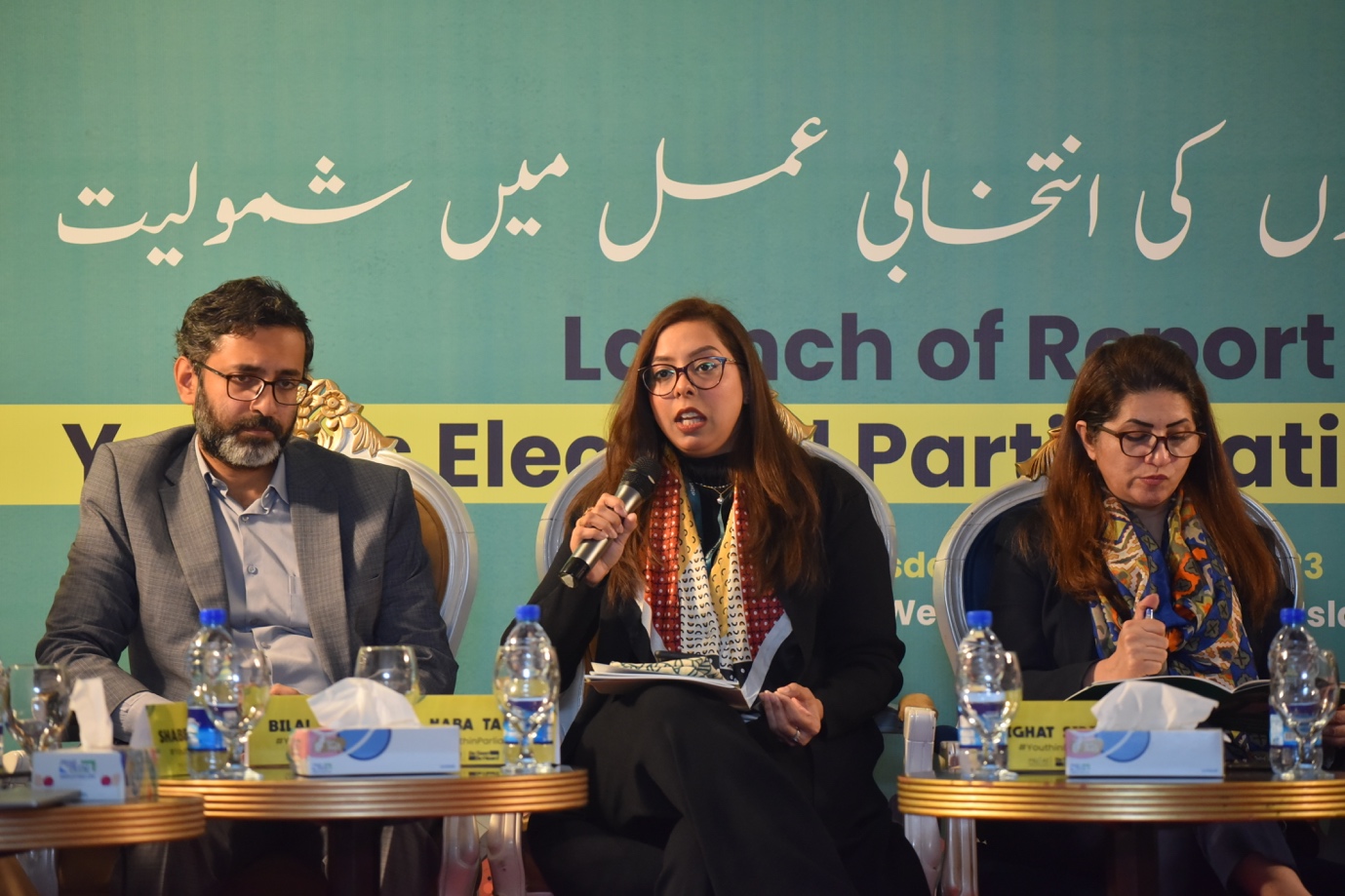
Ms. Naba Taqvi, who leads Branding & Communications at The Body Shop, extended a warm welcome to participants, articulating the brand’s commitment to activism, a legacy that dates back to the inception of The Body Shop. She illuminated the Body Shop International’s global ‘Be Seen Be Heard’ campaign, through which the beauty brand, known for its staunch stance against animal testing and dedication to cruelty-free products, aims to make a difference. The campaign aligns with PILDAT’s efforts to enhance youth electoral participation. In her closing remarks, Ms. Taqvi expressed gratitude towards PILDAT and Mr. Mehboob for their partnership in this visionary endeavor.
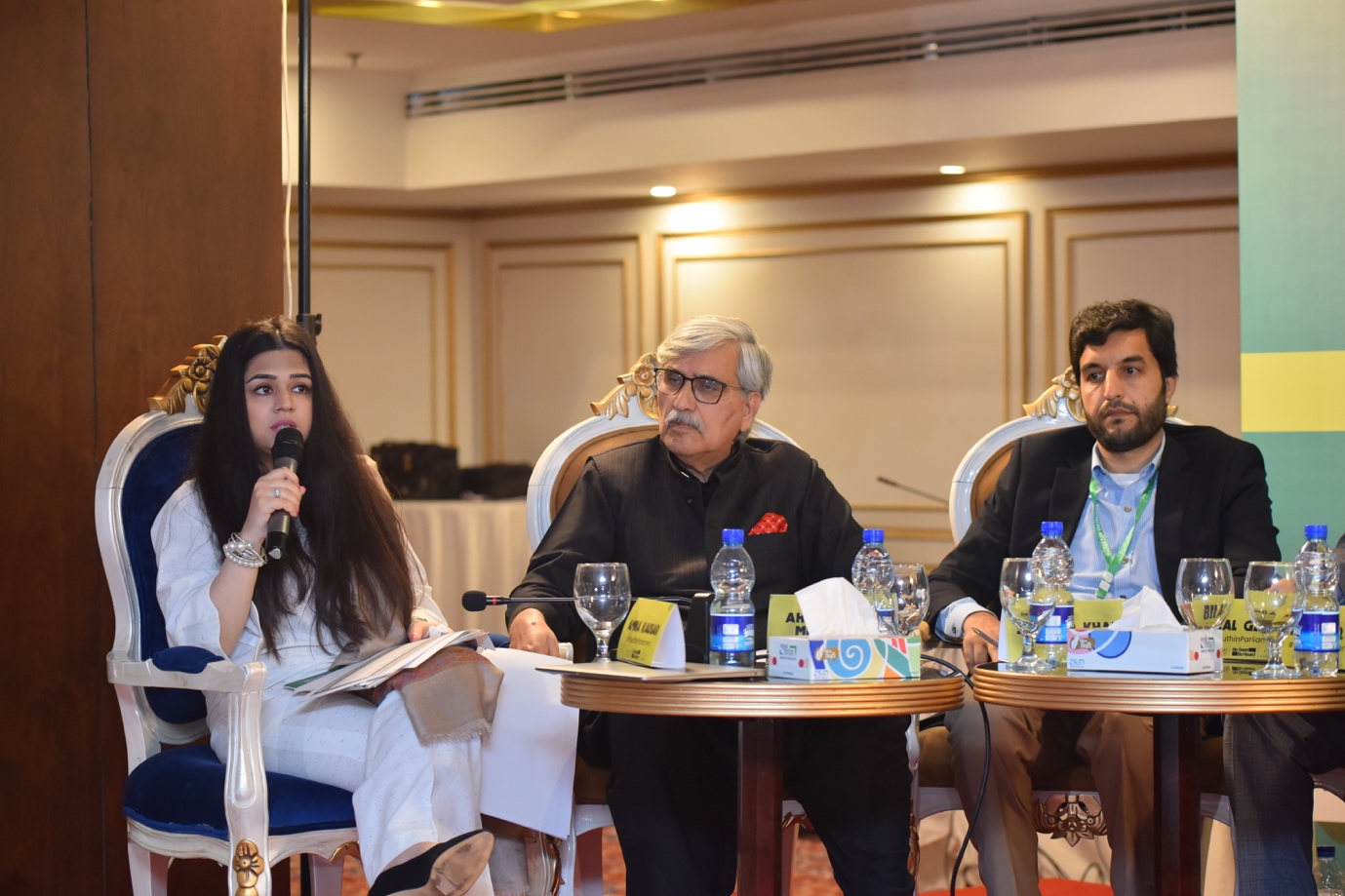
Subsequently, Ms. Amna Kausar, Senior Projects Manager at PILDAT, presented a brief overview of the Report, setting the stage for a dynamic panel discussion on ‘Youth’s Electoral Participation.’ She highlighted that youth, defined as persons aged 15-29, constitute 29% of Pakistan’s population, signaling a significant potential influence on electoral outcomes. Pakistan’s young population is technologically engaged, with widespread use of the internet and social media, suggesting digital platforms as effective channels for voter mobilization. According to the report, as of September 2023, there are approximately 127 million registered voters in Pakistan. Out of these, around 55 million voters are young Pakistanis aged between 18 and 35. This age group represents about 43.85% of the total eligible voting population, making it a significant demographic in the electoral landscape of the country. The data underscores the potential impact the youth vote could have on election outcomes and the importance of their participation in the democratic process. Historical data suggests a persistent gap between youth voter turnout and overall voter turnout, emphasizing the need for targeted measures to increase youth electoral participation. International examples of successful youth voter mobilization from countries like India, Sri Lanka, and the United States were examined, providing potential strategies for enhancing youth participation in Pakistan. She recommended through the report steps for various stakeholders such as the Election Commission of Pakistan, political parties and youth themselves to improve youth voter turnout.
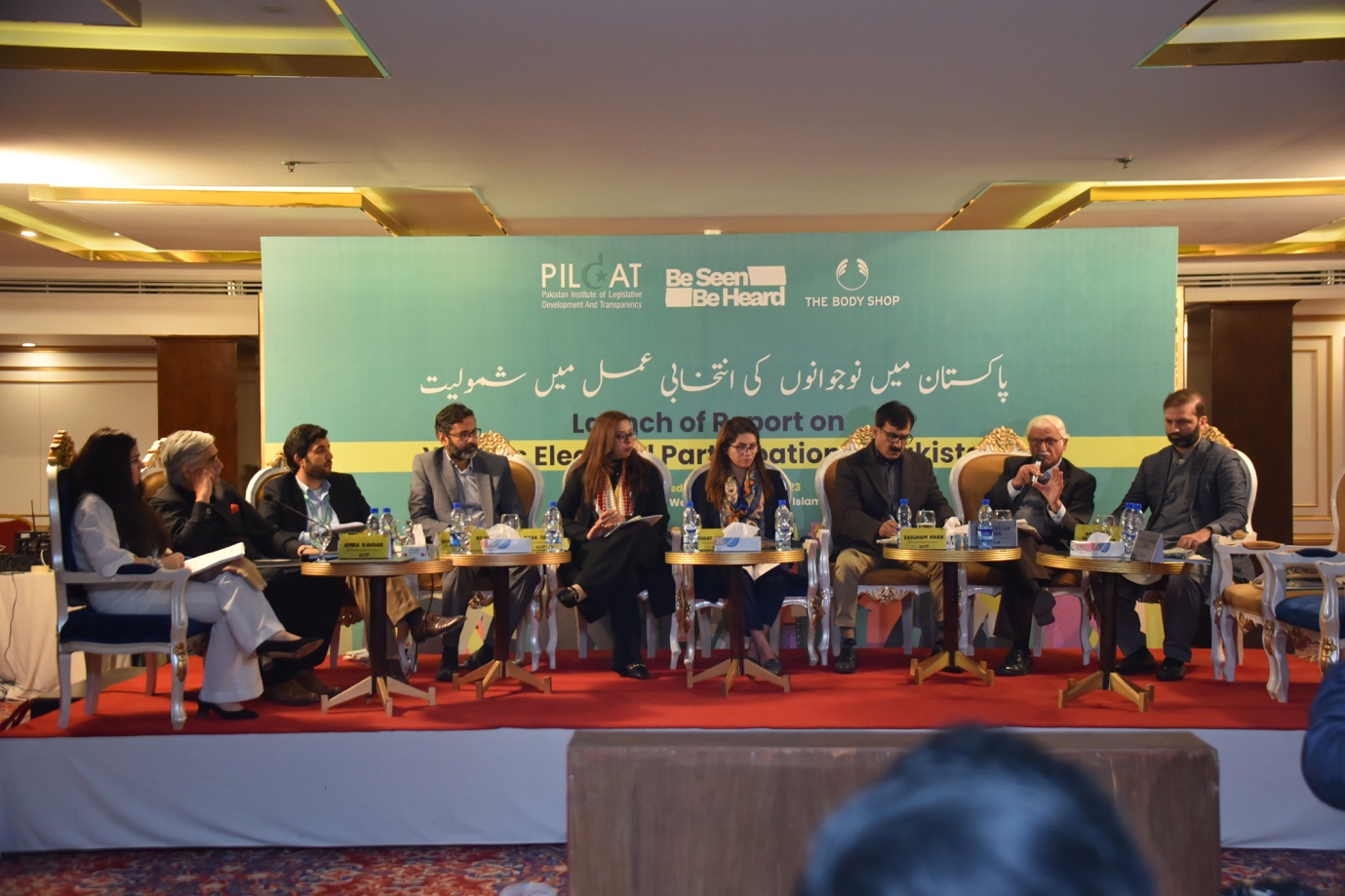
Distinguished leaders including Senator Dr. Afnan Ullah Khan from PML-N, Former Senator Farhatullah Babar from PPP, Senator Barrister Syed Ali Zafar from PTI, alongside Ms. Nighat Siddique and Mr. Shabbir Khan from the Election Commission of Pakistan (ECP), converged for a dynamic panel discussion. This unprecedented gathering, which also featured esteemed Analyst Mr. Zaigham Khan and Gallup Pakistan’s Executive Director, Mr. Bilal Gilani, marked a ground-breaking moment in Pakistani discourse regarding the vital role of youth in shaping the nation’s democratic landscape.
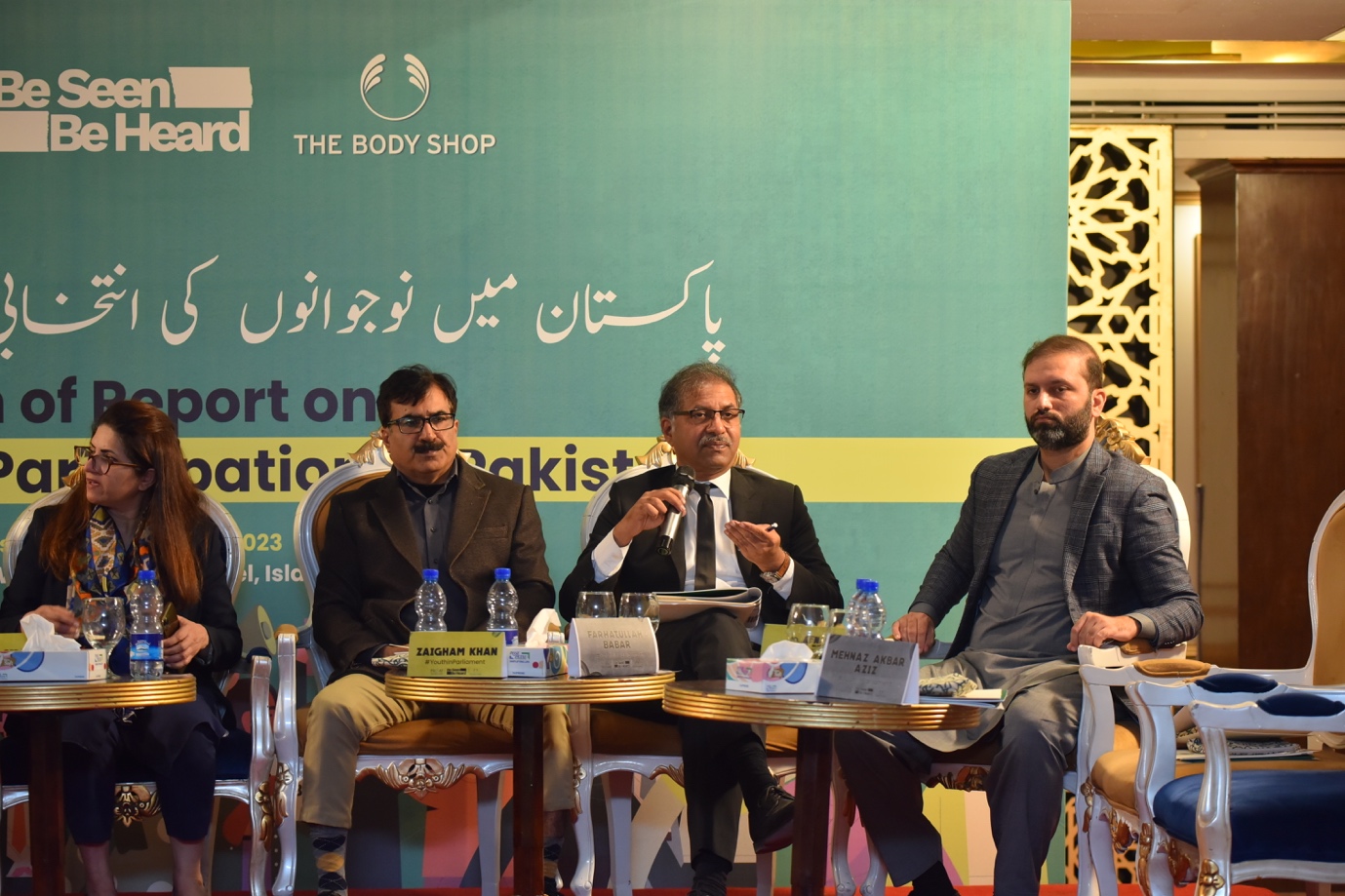
In a thought-provoking Panel discussion at the Report launch, Mr. Farhatullah Babar stressed the urgent need for a level playing field, advocating for the active involvement of youth, minorities and women to ensure inclusivity in the electoral process. He highlighted the disheartenment among youth and their high level of mistrust, and he emphasized the necessity for increased surveys and youth participation, pointing out four crucial elements for achieving this goal, while also underscoring the revival of student unions. Ms. Nighat Siddique, representing the Election Commission of Pakistan (ECP), outlined the ECP’s efforts in educating students about the voting process, attributing the low youth voter turnout partly to issues with National Identity Cards (NICs) and sharing statistics on the extensive outreach initiatives conducted in collaboration with PILDAT. Mr. Bilal Gilani, Executive Director of Gallup Pakistan, echoed concerns about low youth voter turnout, citing mistrust and registration difficulties as alarming factors, based on their survey findings. Mr. Zaigham Khan highlighted the distinction between the “youth bulge” and the potential of youth, emphasizing the necessity of involving them in politics and reviving student unions. Senator Dr. Afnan Ullah Khan outlined his party’s manifesto, proposing strategies to enhance youth electoral participation. Mr. Shabbir Khan from the ECP provided statistical insights into their outreach efforts, acknowledging the youth’s lack of awareness, and underscored the need for informed political participation. Lastly, Senator Syed Ali Zafar emphasized that the nation’s future lies in empowering the youth and urged the importance of exercising the vote. After an insightful panel discussion, a Q&A session took place that led to the closing of the launch by PILDAT.
The event, attended by a diverse pool of media, politicians, CSOs and international development organizations, focused on crucial insights to address the challenges of youth inclusion and participation in elections.
Please find the PDF version of the report in English here and Urdu here.






